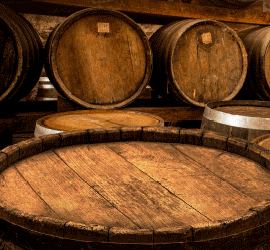A Senate report on the Australian winegrape purchases code of conduct has recommended that the code be made mandatory, and that the Federal Government should explore the “feasibility” of distilling surplus wine into industrial alcohol as a way of treating the national wine oversupply.
The Senate Rural and Regional Affairs Committee produced the report on Friday last week, following its inquiry into the winegrape purchases code of conduct.
The report detailed five recommendations to tackle the issues of oversupply and unfair conduct
First, that the code of conduct (which is currently voluntary) be developed into an “appropriate” mandatory model, to be executed by the Australian Competition and Consumer Commission (ACCC).
The report said that the code of conduct should establish “fair and equitable terms”, addressing the following:
- payment terms to be limited to within the financial year of delivery at the latest;
- quality requirements including minimum standards, measurement methods, and what actions will be taken if the requirements are not met;
- earlier indicative pricing; and
- binding dispute resolution
Other recommendations of the report were for Wine Australia to “enhance” its collection and distribution of wine industry data, and for the Federal Government to investigate ways to dispose of the country’s excess wine—including the potential to distil the surplus into industrial alcohol, for the government to investigate support packages allowing growers to transition into other crops.
The report also recommended that Australian Grape & Wine produce an updated Pre-Budget Submission “reflecting the current status of the Australia wine industry”.
“There are two reasons for the loss of value and hardship currently being felt in the industry,” the committee stated in its report.
“First, an oversupply of grapes and wine as a result of decreasing domestic and global demand. Second, inadequate terms and conditions in commercial relationships between different parts of the supply chain, from growers through to the retailers. It is important to recognise that, while both of these factors have an effect on the wine industry, they are two separate problems requiring different solutions.”
To read further detail about the Senate’s recommendations, the report can be accessed in full here.
Are you a Daily Wine News subscriber? If not, click here to join our mailing list. It’s free!





















